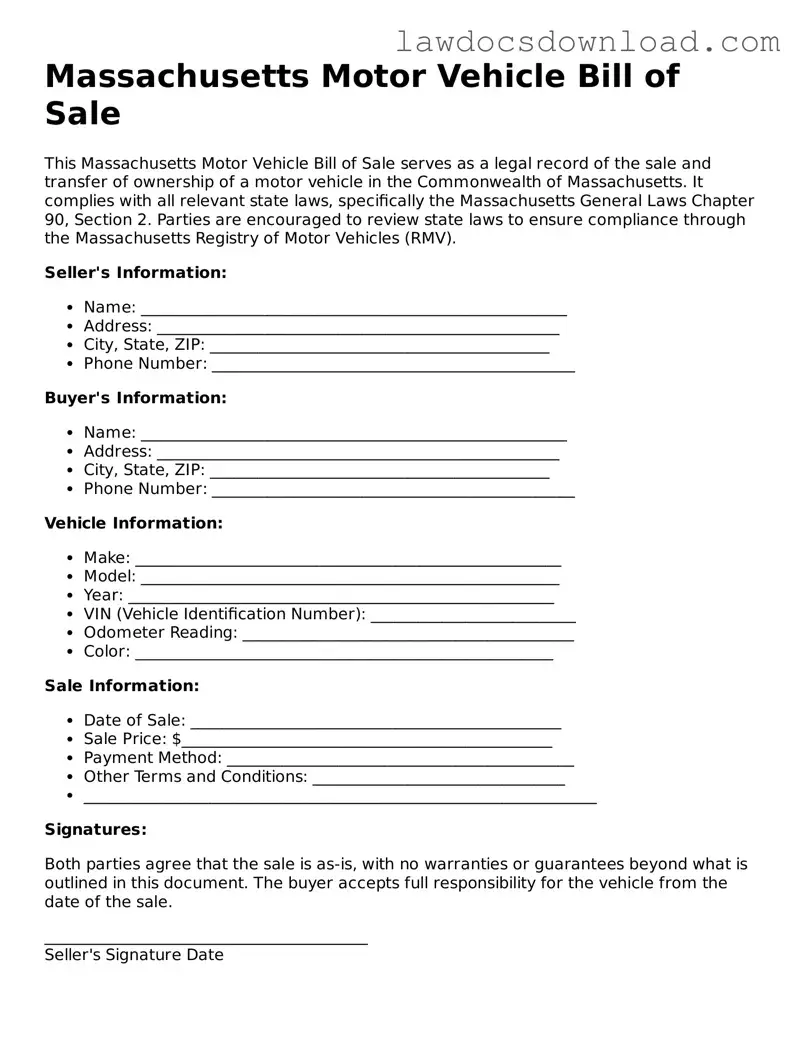Legal Massachusetts Motor Vehicle Bill of Sale Form
The Massachusetts Motor Vehicle Bill of Sale form serves as a legal document that records the sale and transfer of ownership of a motor vehicle from one party to another in the state of Massachusetts. It outlines the details of the transaction, including information about the buyer, seller, and the vehicle itself. This document is crucial for the registration process and for legal protection in the event of disputes.
Launch Motor Vehicle Bill of Sale Editor Here

Legal Massachusetts Motor Vehicle Bill of Sale Form
Launch Motor Vehicle Bill of Sale Editor Here

Launch Motor Vehicle Bill of Sale Editor Here
or
Free Motor Vehicle Bill of Sale
Get this form done in minutes
Complete your Motor Vehicle Bill of Sale online and download the final PDF.